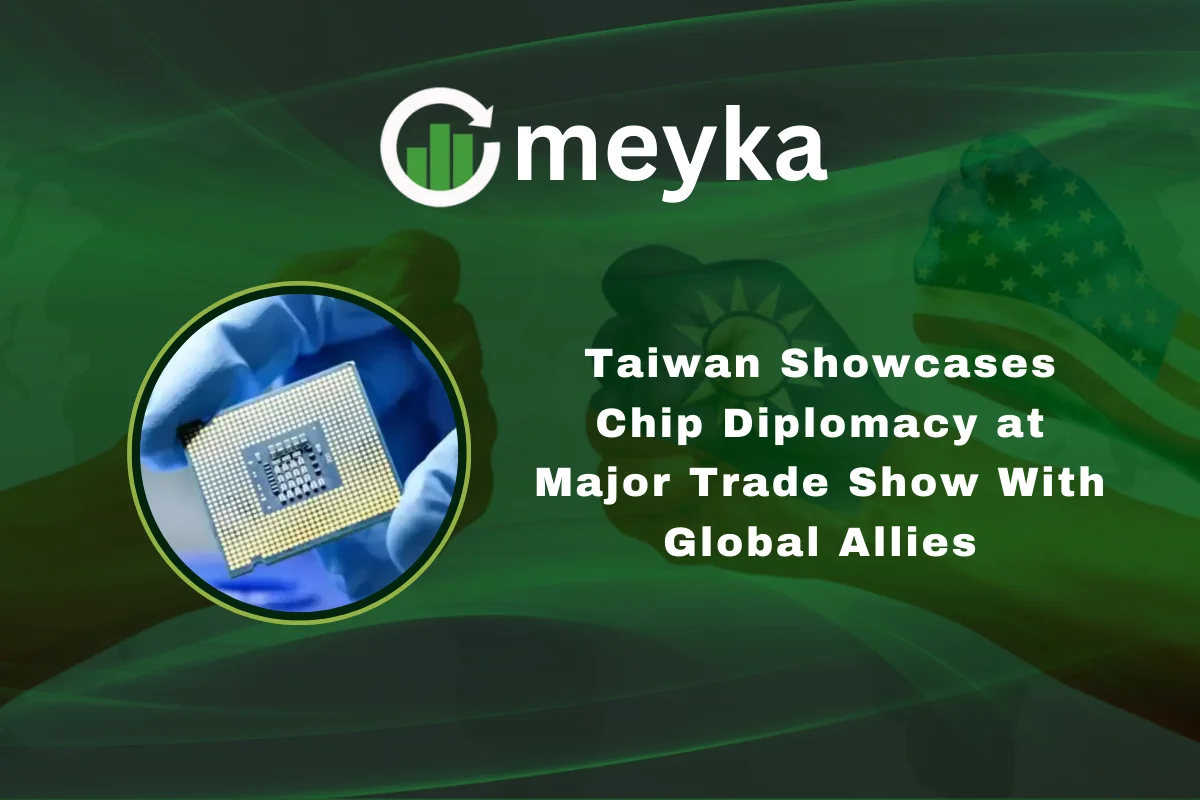Taiwan Showcases Chip Diplomacy at Major Trade Show With Global Allies
Taiwan has stepped onto the global stage once again, highlighting its unmatched role in the semiconductor industry and its influence in international trade. At a recent major trade show, the island showcased not only its technological strength but also its diplomatic efforts, using semiconductors as a powerful tool to connect with allies around the world.
The event brought together policymakers, investors, and tech leaders who all recognize Taiwan’s critical position in global supply chains. As demand for AI chips, electric vehicles, and cloud computing grows, Taiwan’s chip diplomacy is becoming a defining feature of its foreign relations and economic strategy.
Taiwan’s Strategic Role in the Semiconductor Industry
The global semiconductor industry is the backbone of today’s digital economy, and Taiwan sits at its very heart. The island produces a majority of the world’s advanced chips, thanks to leading companies such as Taiwan Semiconductor Manufacturing Company (TSMC). This dominance has turned Taiwan into an indispensable partner for industries ranging from AI stocks and smartphones to defense technology.
At the trade show, Taiwanese officials and executives emphasized how the nation’s production capacity fuels innovation worldwide. Without Taiwan’s advanced nodes, most modern technologies, from AI research to renewable energy, would face serious setbacks. This central role gives Taiwan unique leverage, making its partnerships essential not just for commerce but also for national security.
Chip Diplomacy as a Bridge Between Allies
Taiwan is using its semiconductor expertise as a form of diplomacy, building stronger ties with major economies such as the United States, Japan, and Europe. The trade show became a platform to showcase collaborative projects, including new chip fabrication plants, research partnerships, and investment opportunities.
This chip diplomacy works on two levels. On one hand, it assures allies that they have access to a reliable chip supply. On the other hand, it strengthens Taiwan’s geopolitical standing, reinforcing its value in a world where supply chain stability is under constant pressure.
For countries navigating competition in the stock market, particularly in the technology and AI sectors, Taiwan’s commitment provides much-needed certainty. Investors and governments alike view the island as a dependable partner amid global uncertainty.
Global Demand and the Push for Innovation
The trade show reflected how demand for semiconductors continues to accelerate, especially with the rise of artificial intelligence, 5G networks, and electric mobility.
Taiwan’s companies presented new solutions that cater to these growing industries, ensuring they remain ahead of global competitors.
Chipmakers unveiled innovations in energy efficiency, faster processing power, and advanced design, features that support the next wave of AI-driven applications. This progress strengthens Taiwan’s influence in stock research and long-term investment decisions, as markets consistently respond to breakthroughs in semiconductor technology.
Strengthening Economic Security Through Alliances
Economic security was a central theme at the event. Taiwan highlighted the importance of diversified supply chains and international cooperation in reducing dependency on any single region. By building partnerships with allies across Asia, North America, and Europe, Taiwan aims to create a more resilient semiconductor ecosystem.
The island’s leadership also reassured global partners that, despite rising tensions in the region, Taiwan is committed to stability. This reassurance resonated strongly with investors and foreign companies who continue to explore joint ventures and new investments in Taiwan’s semiconductor sector.
Technology, Trade, and Stock Market Implications
The developments presented at the trade show carry significant implications for the stock market. Investors closely monitor semiconductor announcements, as they often influence the performance of AI stocks and tech indexes worldwide.
Taiwan’s semiconductor sector is seen as a driver of market optimism. When Taiwanese companies announce breakthroughs or partnerships, related stocks tend to rise. The trade show, with its high-profile announcements and collaborations, has already sparked interest among stock research analysts and global investors.
This trend underscores why Taiwan’s role in the chip industry is not just about technology; it is a key factor shaping financial markets and global investment flows.
Challenges Ahead for Taiwan’s Chip Industry
Despite its strong position, Taiwan faces challenges that cannot be overlooked. Rising competition from South Korea, the United States, and China poses long-term risks. Nations are investing billions into domestic semiconductor industries to reduce reliance on Taiwan.
Geopolitical tensions also remain a critical concern. Any disruption in Taiwan’s semiconductor supply would have massive global consequences, affecting industries and stock markets alike. The island’s leaders are well aware of these risks, which is why events like the trade show are crucial for reinforcing partnerships and securing global trust.
Taiwan’s strategy is to remain indispensable by continuously innovating, investing in advanced manufacturing, and maintaining strong alliances with global powers.
The Future of Taiwan’s Chip Diplomacy
Looking ahead, Taiwan’s semiconductor diplomacy will continue to shape global technology and trade. By aligning its industrial strengths with the needs of its allies, Taiwan can secure both economic prosperity and geopolitical stability.
The trade show served as a clear reminder that Taiwan is not just a participant in the global economy; it is a leader. Its semiconductors are the foundation of modern life, and its diplomacy ensures that the world remains connected and secure.
In the years to come, Taiwan will likely deepen its influence, using chip diplomacy as both a shield and a bridge in a rapidly changing world.
FAQs
Taiwan controls a majority share of advanced chip manufacturing, primarily through TSMC. Its chips power essential technologies such as AI, 5G, and electric vehicles.
Chip diplomacy refers to how Taiwan uses its semiconductor expertise to build stronger ties with global allies, securing both economic and political support.
Developments in Taiwan’s chip sector directly impact technology stocks, especially AI stocks. Innovations and partnerships announced in Taiwan often lead to market shifts and investment opportunities.
Disclaimer:
This content is made for learning only. It is not meant to give financial advice. Always check the facts yourself. Financial decisions need detailed research.






